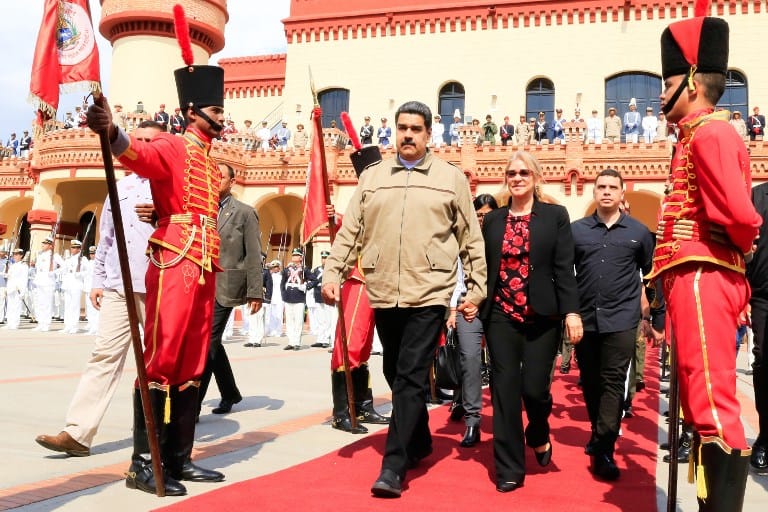Members of the Inter-American Treaty of Reciprocal Assistance (TIAR) are preparing lists of associates of the government of Nicolás Maduro who may be subject to sanctions, a senior Venezuelan opposition representative said Tuesday in Washington.
Julio Borges, commissioner for Foreign Relations of Venezuelan opposition leader Juan Guaidó, said that a technical commission within the framework of the TIAR began this week to determine which people related to Maduro could be sanctioned for violations of human rights, corruption and money laundering.
“These lists are being built on these three areas for the first time to achieve concrete sanctions at the Latin American level. It is a huge step that will put enormous pressure [on the Maduro government],” Borges told reporters.
These recommendations will be brought to the TIAR’s next meeting of foreign ministers, scheduled for the first week of December, “so that the measures to be taken can be decided in a binding manner,” he added.
Borges did not provide names nor further details regarding the preliminary listings.
On September 23, 16 of the 19 member countries of the TIAR defense pact resolved to identify people and entities associated with the Maduro government involved in illegal activities and linked to transnational organized crime networks.
The initiative, promoted by the United States, was also approved by Argentina, Bahamas, Brazil, Chile, Colombia, Costa Rica, Dominican Republic, El Salvador, Guatemala, Haiti, Honduras, Panama, Paraguay, Peru and Venezuela, represented by delegates from Guaidó . Uruguay voted against, Trinidad and Tobago abstained and Cuba was absent.
The United States, which heads the international campaign to take Maduro out of power, whose government it considers “a dictatorship,” has already imposed punitive measures against more than 100 officials and former officials of Venezuela, including Maduro.
More pressure from the US
Borges spoke with journalists after meeting in the State Department with the United States special representative for Venezuela, Elliott Abrams, and with the main US diplomat for Latin America, the Undersecretary of State for Western Hemisphere Affairs, Michael Kozak.
The purpose of Borges’ visit, who on Tuesday met with members of the Senate Foreign Relations Committee and on Wednesday plans to do so with members of the House of Representatives, is to ask the United States to exert more pressure against Venezuela and Cuba, they said to AFP diplomatic sources.
Borges insisted on Tuesday that Caracas and Havana are no longer a threat of regional destabilization, but a “reality.”
“Cuba has always had the obsession to have control of Venezuela and what it touches now is America,” he said.
The General Secretariat of the Organization of American States (OAS), headed by Luis Almagro, denounced last week what he described as a “pattern” of destabilization from Venezuela and Cuba in Latin American countries, first in Colombia and Ecuador and then also in Chile.
Some fifty countries recognize Guaidó as interim president of Venezuela and support their efforts to promote Maduro’s departure, whose term they consider to be the result of fraudulent elections.

